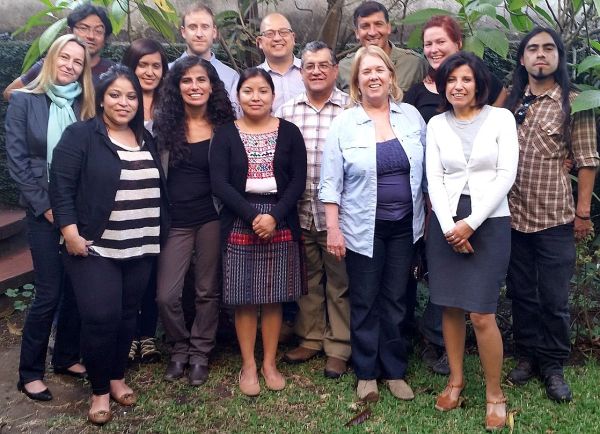The Journey Starts with 10 Voices
During the 1960s, the Guatemalan government unleashed a war against various small guerilla groups across the country. This so-called “internal conflict” turned into a 36-year genocide against Mayan populations.
In 2015, 45 years later after the start of the genocide, I traveled to Guatemala with a small team from USC Shoah Foundation to train staff from a local organization called the Fundación de Antropología Forence de Guatemala (FAFG) to begin documenting the first audiovisual interviews from survivors. The first interviews were recorded in the two weeks with Institute staff and then four additional testimonies were recorded. In all, 10 interviews make up the pilot phase of the new Guatemala Genocide Testimony Collection.
FAFG has worked in Guatemala for over two decades, helping fellow Guatemalans to identify the remains of disappeared family members. FAFG’s expertise and trust gained within the population convinced survivors to share their testimonies with the hope to educate the world about this genocide.

The stories of the survivors were incredibly diverse. Some were from Guatemala City but most from small towns in the countryside. Some were survivors of massacres, others abducted by the military from their homes, but all were young adults or children when they experienced these horrific situations. Their lives turned upside down, becoming orphans and having to escape or change their identities.
Survivor Jacinto Lupamac recounts his and his brother’s fate. After surviving the massacre “Cuatro Pueblo” the three boys were taken by one military perpetuator, he intended to adopt them but his wife refused. So he changed their names and brought them to a catholic orphanage where they had to learn Spanish to communicate with other children and adapt to a new culture. Although the orphanage felt like a prison, Jacinto said, he never felt so safe.
Many interviewees became activists by recounting their memories, searching for the truth about human rights violations and missing family members.
Yolanda Aguilar became an advocate condemning sexual abuses of the military as a genocidal weapon. Jesús Tecú was awarded the Reebok price for Human Rights for his work shedding light on the massacre of Rio Negro. Juana Baca manages an organization and shelter for women in Nebaj. Ambrosio Perez and Jacinto Lupamac both testified in court against their perpetrators. Sandra Garcia works at the Historical Archive of the National Police, called by George Lovell “a cabinet of atrocities that reveals conspiracy and complicity on the part of police officers engaged in a ghoulish network of surveillance, intimidation, abduction, torture and murder.”
Sandra’s motivation to tell her story is not only related to her past, but her present as well. While conducting research at the local police station, Sandra was confronted by an officer, who put his hands on her shoulders said aloud that with the new trials they should also start to prosecute guerrilla people, and he called her name. Sandra expressed how afraid she felt in this moment because she knew this man was a former torturer.
These 10 testimonies are initiating the Guatemalan project. The firsthand account of their lives and personal history started the gathering of evidence on the genocide and the crimes committed against humanity in Guatemala, with the purpose of serving for education and research. This new testimony collection will preserve memories, in a society that is in a great divide over denial, forgetting or remembering what happened.